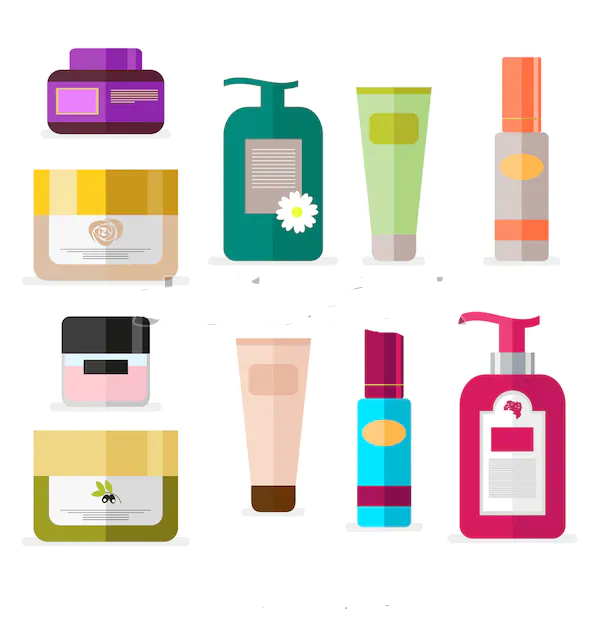Publics Right 2 Know.org
Do you REALLY KNOW or CARE to Know What Chemicals are in the personal care and beauty Products You Put on your bodies and Use in your Environments Everyday?
You have the Right to Know!

 ?
?
|
Most of the information contained on this website page are third party, scientific, peer reviewed studies and articles, news clips, third party validations, listed by many years and months, on information about chemicals in everyday used personal care, and beauty cosmetics. We are not responsible for its content and have given resource identification to all information where possible. |
2021 Environmental Working Group Rating -2- on Pure Haven Sunscreen
About the Product In-depth knowledge about this product
Ingredients
Ingredients from label Active Ingredients: Titanium Dioxide 6%, Zinc Oxide 6%, Inactive Ingredients: Aloe Barbadensis (Aloe Vera) Juice, Aqua (Deionized Water), Camellia Sinensis (Green Tea) Leaf Extract, Caprylic/Capric Triglyceride, Cetearyl Alcohol, Cetearyl Glucoside, Cetearyl Olivate, Curcurbita Pepo (Pumpkin) Seed Oil, Ethyl Hexyl
2021 Childrens-health-defense-j--j-has-a-long-rap-sheet--why-should-we-trust-its-vaccine
Alert on Cosmetics,Boston Globe, Senator Ed Kennedy
Cancer-is-made-not-born-Debra-Lee-Davis
CPC-Cancer Prevention Coalition of Los Angeles
Controversial-Questionable-Known Carcinogens
Chemical-intolerance
Cancer Prevention Coalition Presentation on-chemicals-in-everyday-products
Dangers of Sugar
Dont-spray-California
Facts on carcinogens at home and what you have a right to know about!
Flouride Dangers Page
Mammograms-cause-cancer-use-thermography-instead
Mammogram-xray-dangers--dr-samuel-s-epstein
Thermography-instead-of-mammography
Toxic Beauty Salons
Who-is-writing-the-rules-for-the-cosmetic-industry?
California to get chemicals out of personal care and beauty products
Parabens and Their Dangers
Can Your Shampoo Cause Cancer?
Mammograms Cause Cancer, try thermography instead
Mammogram-xray-dangers--dr-samuel-s-epstein
|
From the book " The Safe Shoppers Bible", published in 1995, by Dr. Samuel Epstein, MD, and Dr. David Steinman, MD. "Not a single cosmetic company warns consumers of the presence of carcinogens in its products - despite the fact that several common cosmetic ingredients or their contaminants are carcinogenic themselves or are carcinogenic precursors." "Consumers have an inalienable right to know what ingredients are in products they use daily, and to be certain that chemicals posing chronic health risks will be phased out when alternatives are available. These are rights regardless of one's perception of the risk of the ingredient. Yet walk down the aisle of any supermarket and you will quickly see how minimal regulation has led to grossly inadequate labeling. |
Your Decisions as Health Product Consumers
|
"Which one should I choose?" Think about a time when you might ask yourself this question. Probably practically everyday. The choices you make are important, especially when they concern your health. You need to learn how to make wise decisions about the health products and services you buy and use. Laws for the chemicals and ingredients in our everyday personal hygiene and beauty care products were first made in 1938. There have been NO NEW LAWS SINCE 1938 (see 1997 Kennedy to Congress Press Release in Boston Globe), yet over 8,453 new chemicals have been added to our products since 1938, without proper testing or knowledge of long range effects. Senator Ed Kennedy went before Congress in 1997, with information from the General Accounting Office that over 125 known carcinogens are in our daily personal hygiene and beauty products. "Over 800 chemicals available for use in cosmetics have been reported to the government as toxic substances." quoted from The National Institute of Occupational Safety and Health. How Can you Become a Wise Health Consumer? Perhaps you think there is nothing much to learn about buying products. Wise, shopping, however, is not always that simple. Many people have learned that the most costly products are not always the best ones. Questions you should ask before you buy are: What ingredients are in the product and what do they mean? Can I buy something better if I take more time to look and think about it? What Can Help you Become a Wise Health Consumer? Public Health Educators, Health Care Professionals, Cancer Prevention Educators, nurses, pharmacists, doctors can give you some advice about health care products. The library has a good source of materials that can help you be a smart shopper, such as Dr. Sam Epstein's Cancer Prevention Coalition, www.preventcancer.com, and Dr. Epstein's and David Steinman's, 1995 book, also Politics of Cancer Revisited by Dr. Samuel Epstein, 2001-02, "Unreasonable Risk", How to Avoid Cancer from Cosmetics and Personal Care Products, "What's In Your Milk", Cancer Gate, Winning the War on Cancer". Judy Vance's book "Beauty to Die For", another is Debra Lynn Dadd's book, "Non Toxic Homes", and Aubrey Organics books, "Beauty Without Cruelty", all about the toxins in everyday personal hygiene and beauty products.". Also these resources including www.breastcanceraction.org, , www.ewg.org, and FDA websites have some information about products, chemicals and their own ratings, many years behind the time. Material Safety Data Sheets list all the chemicals that are in our everyday products and their measure of safety or hazard. Almost every University has these sheets. News reports and scientific articles are also good sources. How Advertising can Influence You as a Consumer Advertisements are sources of information that help make people aware of different products or services. Some ads give helpful information about a product. Not all give you the information you need and want. Some give scientific claims and those can be checked out with the facts in writing. The product may or may not be a good choice for you. Some companies spend millions of dollars each year developing advertising to sell products. Often the price of a shampoo is higher simply because it comes in a fancy container, but in reality the cap on the bottle costs more than the shampoo itself. Once you are an informed consumer and you learn about the chemicals and ingredients in your products, then you can make informed decisions and wise choices. Protecting your health and skin should be of utmost importance to you and your family. |
 these questionable, controversial chemical ingredients
these questionable, controversial chemical ingredients